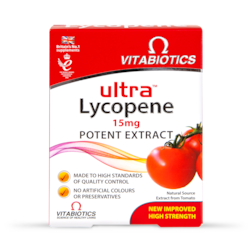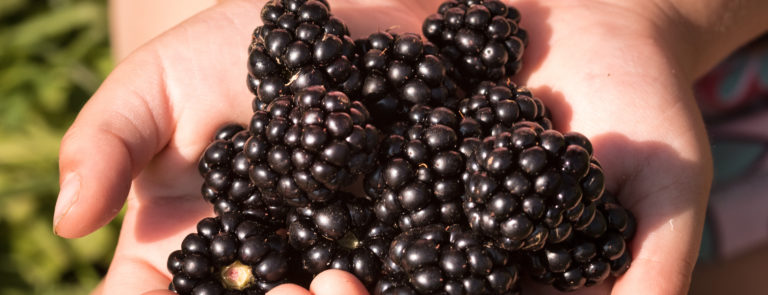20% off €35
Code:EXTRA20
The best lycopene supplements

Are you looking for a lycopene supplement you can trust? Get the low-down on all thing’s lycopene & some of the best lycopene supplements here.
Summary
1What does lycopene do?
Lycopene has been extensively researched for over 70 years, with over 2000 articles published in peer-reviewed journals and countless other...
2What are lycopene supplements good for?
Lycopene supplements are a great option for people who don’t like lycopene-rich foods like tomatoes and grapefruits. You can take them anywhere...
3Why is lycopene bad for you?
As lycopene is extracted from fruits and vegetables – usually tomatoes – it is very rare that it could be bad for you unless that food is...
Have you been recommended a lycopene supplement?
Maybe you’re just curious as to what this mysterious substance is and why it’s so important? Either way, you have come to the right place!
Explore all things lycopene & discover 3 of the best lycopene supplements we sell here at Holland & Barrett to see which one is best for you and your needs.
What is lycopene?
Lycopene is a type of carotenoid – a class of 750+ naturally occurring pigments found in plants, algae and some types of bacteria.
These carotenoids are vividly coloured and provide the colours of some of our favourite fruits and vegetables, especially the yellow, orange and red ones.1
Lycopene gives fruits and vegetables a red or pink colour, so you’ll find it in the following:
- Tomatoes
- Watermelons
- Pink grapefruits
- Red oranges
- Rosehips
- Guavas

What does lycopene do?
Lycopene has been extensively researched for over 70 years, with over 2000 articles published in peer-reviewed journals and countless other publications.3
Most of the studies focus on lycopene derived from tomatoes, as they are the most popular source.
Beta-carotene (that makes carrots orange!) and lycopene are the most abundant carotenoids in human blood and tissues.4
What is the best source of lycopene?
The best sources of lycopene will always be from fresh fruits and vegetables, as you also get all the other nutrients and macronutrients.
You can also get your lycopene from processed foods like tomato sauces and even pizzas (woo hoo!).
In fact, one study suggests that a little processing may help your body better absorb lycopene and other carotenoids; results showed that lycopene concentrations in blood only increased when participants consumed the processed tomato juice.
However, if you want to accurately monitor your intake (or simply don’t like red/pink fruits and veggies) a supplement can be a good way to get your fill.
What are lycopene supplements good for?
Lycopene supplements are a great option for people who don’t like lycopene-rich foods like tomatoes and pink grapefruits.
You can take them anywhere, e.g., to work and on holiday, so you can guarantee you’re getting some every day.
What is the recommended dosage for lycopene?
There is no current recommended daily intake for lycopene, but studies and reputable lycopene supplement manufacturers suggest that a dose of 10-30mg a day.4,5
With that being said, you should always follow the guidance of the manufacturer when taking lycopene supplements.
When should I take a lycopene supplement?
It doesn’t really matter when you take a lycopene supplement, but it is always best to take it with food.
In fact, research suggests that lycopene is better absorbed when taken with fats as it is fat-soluble.6
So whether you get your lycopene from foods or supplements, try to take it with a meal containing fats – even if it's just some olive oil or avocado.
Why is lycopene bad for you?
As lycopene is extracted from fruits and vegetables – usually tomatoes – it is very rare that it could be bad for you unless that food is bad for you.
For example, if your body tolerates tomatoes, you should be totally fine with a lycopene supplement extracted from tomatoes.
Always check with your GP before you start taking a lycopene supplement and please contact them if you do experience any side effects.
The best lycopene supplements
Below are some of our most popular lycopene supplements, along with what our customers have to say about them.
The best high-strength lycopene supplement
All the lycopene goodness from tomatoes in handy tablet form!
These Ultra Lycopene supplements contain a high-strength dose of 15mg of lycopene from tomato extract.
- Contains 430mg of tomato extract, which provides 15mg of lycopene
- No artificial colours or preservatives
- Suitable for vegans and vegetarians
The final say
- Lycopene is a carotenoid found that gives red/pink coloured fruits and vegetables their colour, e.g. tomatoes and watermelons
- Lycopene supplements are an easy and convenient way to get your daily fill of lycopene, especially if your diet looks a little sparse in the fruit and vegetable department
- Most lycopene supplements are made from tomato extracts, and you can also experience the benefits of lycopene first-hand with tomato products like juices and sauces
- There are no current recommendations for how much lycopene you should get a day, but evidence suggests that 10-30mg is a good dose to aim for
- We hope this article has helped you understand what lycopene is, why you may want to use it, and the different supplements that are available to you
You also asked...
There is not enough evidence to suggest that lycopene can help you to lose weight.
However, as pretty much all lycopene sources are fruits and vegetables, they can form part of a healthy, balanced diet, which is key to sustainable weight loss.
There is no current evidence that suggests that lycopene can cause or help prevent spots and breakouts.
As with most supplements, lycopene is not recommended for pregnant or breastfeeding people as there have not been enough studies to determine if it is safe or not.
Stick to the tomatoes and other fruits and veggies to be on the safe side.
No, not if the lycopene supplement has been made from tomatoes as it can pose the same threat.
For lycopene supplements made from a different food extract – check with your GP.
Yes, it can be harmful to people who have just had surgery or are going to have surgery, as it can slow down blood clotting and cause bleeding after surgery.
Lycopene has been associated with an increased risk of bleeding and failure to form blood clots.
So, for people who are taking blood-thinners, blood pressure medications or other medications that increased bleeding risk, you should consult your GP to see if it’s safe.
The advice in this article is for information only and should not replace medical care. Please check with your GP or healthcare professional before trying any supplements, treatments or remedies. Food supplements must not be used as a substitute for a varied and balanced diet and a healthy lifestyle.
- https://lpi.oregonstate.edu/mic/dietary-factors/phytochemicals/carotenoids#:~:text=Carotenoids%20are%20a%20class%20of,found%20in%20the%20human%20diet
- https://www.ncbi.nlm.nih.gov/pmc/articles/PMC3850026/
- https://www.health.harvard.edu/blog/lycopene-rich-tomatoes-linked-to-lower-stroke-risk-201210105400
- https://www.ncbi.nlm.nih.gov/pmc/articles/PMC3850026/
- https://www.ncbi.nlm.nih.gov/pmc/articles/PMC4023371/
- https://www.ncbi.nlm.nih.gov/pmc/articles/PMC3850026/




